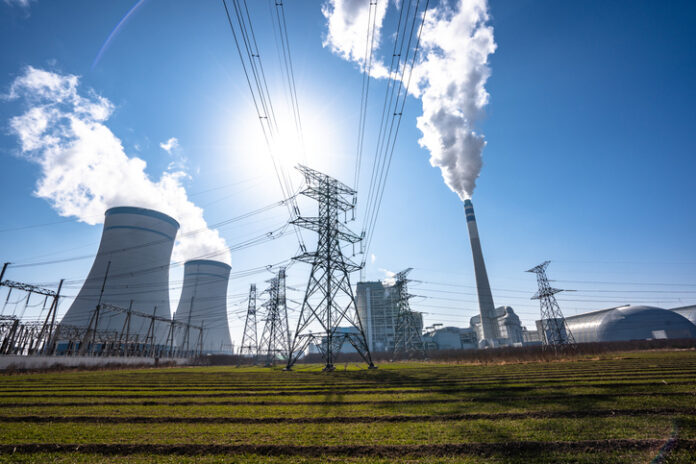By Merrill Matthews
In 2014 – the same year Russia annexed Crimea – then-North Atlantic Treaty Organization (NATO) Secretary-General Anders Fogh Rasmussen warned that Russia was covertly working to undermine European and U.S. fossil fuel production.
Three years later, in 2017, Reps. Lamar Smith (R-Texas) and Randy Weber (R-Texas) sent a lengthy letter to then-Treasury Secretary Steven Mnuchin making a similar accusation. Importantly, their letter connected some of the dots highlighting Russia’s covert efforts to fund various environmental organizations that were trying to limit or end U.S. hydraulic fracturing, or fracking, for shale gas and oil.
The media and Democrats mostly shrugged their collective shoulders at these allegations. They were far too busy trying to prove the now-discredited Russian-Trump election collusion to be bothered with a more plausible Russian-environmental activist collusion.
Maybe Russia’s invasion of Ukraine will force those naysayers to reconsider the accusations and evidence and begin new investigations.
According to The Guardian, Rasmussen, who was also a former prime minister of Denmark, claimed in a presentation to a think tank in London, “I have met allies who can report that Russia, as part of their sophisticated information and disinformation operations, engaged actively with so-called non-governmental organizations (NGOs) – environmental organizations working against shale gas – to maintain European dependence on imported Russian gas.”
He declined to give details, saying only, “That is my interpretation.” NATO’s press office said the remarks were Rasmussen’s personal views, not official NATO policy.
But a NATO official did tell The Guardian, “Russia has been using a mix of hard and soft power in its attempt to recreate a sphere of influence, including through a campaign of disinformation on many issues, including energy.”
While environmental NGOs denounced Rasmussen’s claims, money can be laundered through various organizations in such a way that the final recipient (e.g., a non-profit environmental activist group) has no idea of the funding’s real origins.
And that’s where the Smith-Weber letter comes in.
The letter notes that former Secretary of State Hillary Clinton complained in a speech to a private audience in 2016, “We were even up against phony environmental groups, and I’m a big environmentalist, but these were funded by the Russians …”
Smith and Weber assert that the Russian government and “complicit parties” had a scheme that “allows money originating from foreign countries like Russia to funnel through Bermuda-based shell companies to environmental groups in the United States with the aim of disrupting the U.S. energy industry.”
They alleged that “tens of millions of dollars” were handed to Bermuda-based Klein Ltd., which then funneled the money to the Sea Change Foundation, which distributed the funds to various NGOs.
Clearly, environmental groups have had some success with their anti-fracking efforts. New York, Washington and Maryland have banned fracking. frf issued and executive order last year banning fracking in the state by 2024.
As for Europe, fracking was never really embraced.
The Smith-Weber letter includes much more detail than I can here, so look at their letter for yourself. It does not establish Russian culpability, but it does provide a solid basis for further investigation — if Congress and the media are finally interested.
And they just might be. Given Russian President Vladimir Putin’s horrendous and unjustified invasion of Ukraine, there could be a lot of interest in investigating Putin’s foreign mischief.
In hindsight, it is increasingly apparent that Putin has been preparing for his Ukrainian invasion for years. Dominating the global energy market by covertly working to limit U.S. production would have been a huge coup — in more ways than one.
Instead, over the past decade the United States became the world’s energy powerhouse, producing 18.61 million barrels of crude oil per day in 2020, compared to Russia’s 10.50 million barrels per day, according to the U.S. Energy Information Administration (EIA).
As for natural gas, the EIA says the United States produced 33.5 trillion cubic feet in 2020, verses 22.5 trillion cubic feet for Russia.
Had Russia dominated global energy production, Putin would be in a better position to thumb his nose at countries critical of his invasion—and deprive his critics of needed oil and gas. Putin can still squeeze his critics, but the U.S. energy industry may be able to temper the impact.
If Democrats and the media are still interested in finding some type of Russian collusion, maybe they should begin by investigating whether Russia actually has been covertly funneling money to environmental NGOs.
Originally published by Institute for Policy Innovation. Republished with permission.



























[…] post Investigate Russia’s Covert Funding of US Anti-fossil Fuel Groups appeared first on Heartland Daily […]